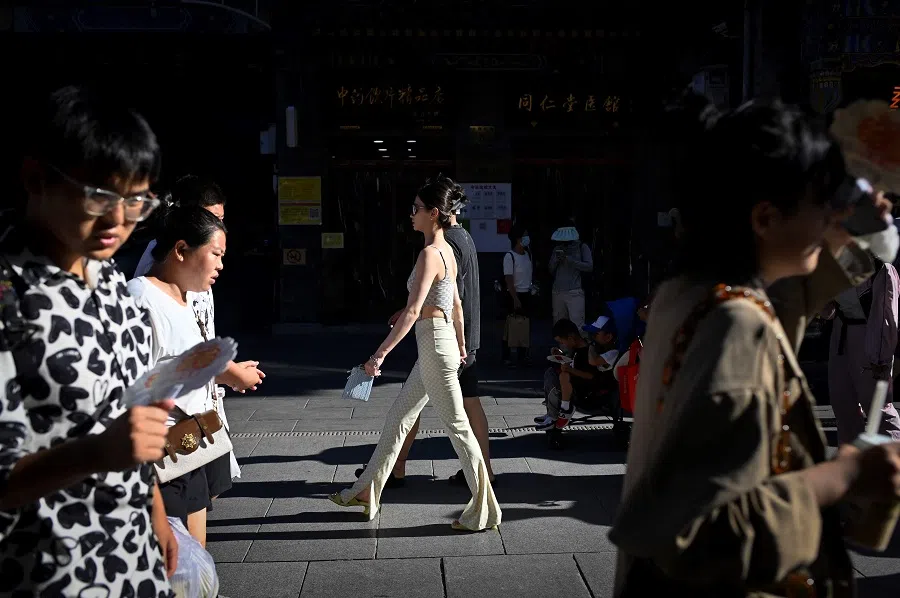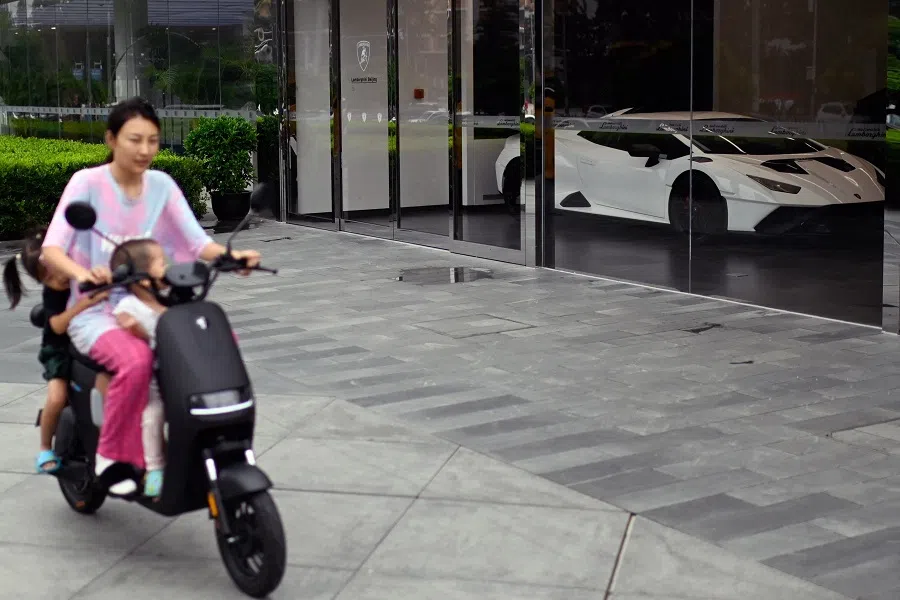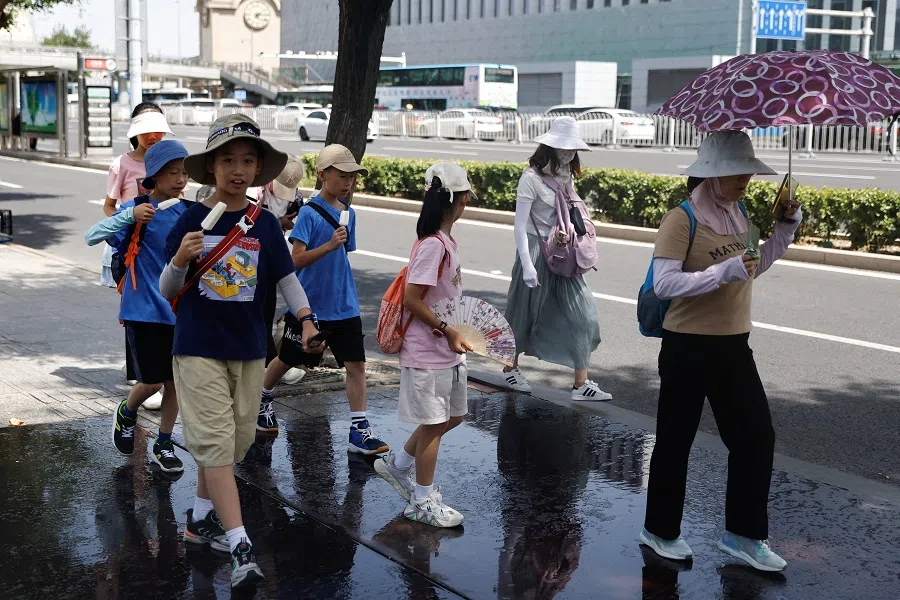Why China's population policies always veer towards the extreme
China's population policies have had a tendency to veer towards the extreme since the era of Mao, says commentator Yu Shiyu. A delayed response to adjusting the one-child policy, which has resulted in a declining population and is expected to have an adverse economic impact, demonstrates the inefficiency of an authoritarian system in self-correcting. Its decision making could also swing between extremes as it is based on subjective top-level thinking.

There is a general consensus within and outside of China that the Chinese economy is in serious trouble, especially since Beijing suspended the release of data on youth unemployment. The Washington Post quoted current Federal Reserve Bank of Chicago president Austan Goolsbee on his rule for data sharing: nobody hides good news. That is sarcastic, but reflective of the issue.
Beijing's upper hand
While many have been pessimistic about China's economic prospects over the years, most predictions have in fact underestimated the capacity of Beijing's authoritarian system in terms of government intervention when compared with governments in pluralistic Western societies.
Indeed, much of the bad news that has hit China's economy over the past six months - the real estate bubble, high youth unemployment rate, low foreign investment, and weak exports and currency - are likely to be mitigated by large-scale government intervention and investment, just as in past decades.

In a recent series of articles on the Chinese economy published in The New York Times, Nobel laureate Paul Krugman acknowledged that China may still be able to get rid of quite a few of its current problems in a few years if it can rectify its current leadership and strengthen its state-controlled policy bias (especially towards the private sector, which creates most of the jobs).
Over the decades, Beijing's population policies have arguably been corrective behaviour or remedial actions.
China's extreme population policies
But Krugman (and many other experts) have also pointed out that a major reason why China can no longer support rapid economic growth is because of its ageing and shrinking population. Last year, China's population declined for the first time in six decades, while its working-age population started to decline in 2016. China's fertility rate even dropped to just 1.09 in 2022. This is a structural predicament that cannot be resolved in the short-to-medium term, and also the fundamental reason why Krugman asserted in The Economist that the Chinese economy may never overtake the US.
In my view, China's demographic crisis put the spotlight on the authoritarian regime's policy correction mechanism, especially in how a centralised ideology has suppressed pluralistic thinking.
Over the decades, Beijing's population policies have arguably been corrective behaviour or remedial actions. While China has advocated the analogy of "overtaking on the bend" (弯道超车) in recent years, Beijing has been slow to respond to the critical "bend" of demographic change, leading to long-term crisis.
China's current demographic crisis can be traced back to the absurd population policies of the Mao Zedong era, especially in labelling economist Ma Yinchu's New Population Theory (新人口论) a new type of "bourgeois" Malthusianism. Ma had concluded that China's high-rate population growth would be detrimental to its development and Mao effectively launched a nationwide condemnation of the theory on an ideological level.
In the words of Chinese Communist Party leader Hu Yaobang, the real consequence was that "one person was wrongly criticised and hundreds of millions of people were born". Apart from ideological biases, Mao's advocacy of "strength in numbers" also encompassed his misjudgement of the global situation. He thought that a nuclear war, which would drastically reduce the population, was inevitable.
...the one-child policy and its execution in China can be viewed as the largest "social engineering project" to result from subjective top-level decision making ever.

Mainland China implemented the one-child policy in the late 1970s to rectify Mao-era population policies. But it was only implemented following Mao's death - by then it was too late. This worsened China's sense of crisis with regard to the "overpopulation theory", resulting in a mandatory one-child policy that was unprecedented in depth, breadth and duration. In fact, the one-child policy and its execution in China can be viewed as the largest "social engineering project" to result from subjective top-level decision making ever.
At least, in cities with strict hukou (户口 household registration) systems, the fertility rate was suddenly halved; this went on for nearly two generations, and such a drastic demographic change inevitably led to a long-term crisis.
Slow government response to self-correct
In early 2007, economic historian Niall Ferguson already predicted that China's demographic crisis would derail the rapidly developing Asian dragon, while several other international experts had also called on Beijing to abolish the self-destructive one-child policy as soon as possible. I also wrote a commentary in Lianhe Zaobao urging Beijing to start observing and learning from the immigration policies of other countries.
Even within China, many experts have also warned about the long-term negative impacts of continuing with the one-child policy. However, just like how it was slow in correcting its misinformed belief in "strength in numbers", Beijing has been slow to correct this "overcorrection" in the process of rapid demographic change. It only implemented the two-child policy a few years ago, before quickly shifting to the three-child policy shortly after. However, it is already lagging far behind in this historical "bend".
China's population policies ultimately highlight an authoritarian regime's excessive control of social space.

Mainland China has again fallen behind and lost the upper hand in the "bend", highlighting problems with the efficiency of corrective measures in authoritarian regimes, especially with the ideological biases and personal preferences of authoritarian leaders, as well as politicians' suppression of experts with differing views.
Excessive control of social space
As former Chinese President Liu Shaoqi put it, the Great Famine of the 1960s "will go into the books", and it will inevitably be evaluated negatively from the perspective of human rights and morals.
Of course, the Beijing authorities can defend themselves by asserting that they had to sacrifice a basic human right for the sake of economic development. However, the necessity of this iron fist policy is questionable.
In the late 1970s, South Korea was not that far ahead of mainland China in terms of political and economic development. However, according to World Bank data, since the 1980s, the average fertility rate of South Korean women who can freely have children has almost always been lower than that of mainland China with its mandatory one-child policy.
Implemented for over a generation, the one-child policy is an unprecedented restriction of a woman's reproductive rights. Furthermore, local governments at various levels took many extreme measures, such as forcibly taking away a couple's "extra" child. It was definitely not a halcyon time of peace and prosperity. China's population policies ultimately highlight an authoritarian regime's excessive control of social space.
Related: China's declining population cannot be easily reversed | China wants to reverse its high abortion rate with pro-birth policies, and young women are not happy | Why democracy is failing and why some authoritarian regimes might just work | Chinese netizens lament barbarity of one-child policy era | Stemming population decline in Chinese first-tier cities





![[Big read] When the Arctic opens, what happens to Singapore?](https://cassette.sphdigital.com.sg/image/thinkchina/da65edebca34645c711c55e83e9877109b3c53847ebb1305573974651df1d13a)